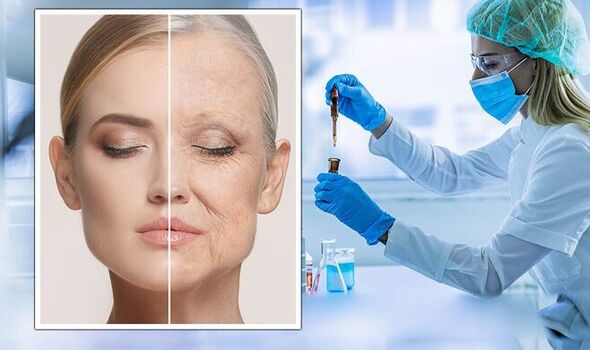The Science of Anti-Aging: Unlocking the Secrets to Youthful Living
Aging is an inevitable part of life, but who says we have to accept the signs of aging without question? In recent years, the science of anti-aging has made remarkable strides, and the pursuit of longevity and maintaining youthful vitality has become a major focus in health and wellness. But what exactly is anti-aging, and how can we use science to slow down the effects of time on our bodies?
Let’s dive into the science behind anti-aging, exploring the biological processes involved, the role of genetics and lifestyle, and the latest breakthroughs in research that could help us live longer, healthier lives.
Understanding the Biology of Aging
Aging isn’t just about wrinkles and gray hair. It’s a complex biological process that affects our cells, tissues, and organs. There are several key factors that contribute to the aging process, including:
- Cellular Senescence: As we age, our cells gradually lose their ability to divide and function properly. These “senescent cells” accumulate over time and can lead to inflammation, tissue damage, and the development of age-related diseases. While senescence isn’t entirely avoidable, researchers are studying ways to clear these cells or delay their accumulation, which could help slow aging and prevent conditions like arthritis or Alzheimer’s disease.
- Telomere Shortening: Telomeres are protective caps at the ends of our chromosomes, and they shorten every time a cell divides. Eventually, when telomeres become too short, the cell can no longer divide, leading to aging or cell death. Scientists have been investigating ways to slow down or even reverse telomere shortening, such as through the use of telomerase (an enzyme that helps rebuild telomeres).
- Mitochondrial Dysfunction: Mitochondria are the powerhouses of our cells, responsible for generating energy. As we age, mitochondrial function declines, leading to reduced energy production and an increase in oxidative stress, which can damage cells and tissues. Researchers are exploring ways to boost mitochondrial health, potentially reversing some aspects of aging.
- Oxidative Stress: The body naturally produces free radicals—unstable molecules that can damage cells and tissues—during normal metabolic processes. This damage, known as oxidative stress, accelerates aging and the development of chronic diseases like cancer, heart disease, and diabetes. Antioxidants, found in many fruits, vegetables, and supplements, can help neutralize free radicals and reduce oxidative stress.
Genetics and Anti-Aging: The Role of Your DNA
Genetics plays a significant role in how we age, with certain individuals genetically predisposed to age more slowly than others. While we can’t change our genetic makeup, understanding the genes associated with aging could help us identify potential ways to slow the process.
Some people are lucky enough to have genetic variations that contribute to longer lifespans and better health in old age. These “longevity genes” are responsible for things like cellular repair, stress resistance, and inflammation regulation. Scientists are studying these genes to figure out how we can activate them or enhance their effects through lifestyle choices or pharmaceutical interventions.
Tip: Though genetics is a major factor, lifestyle still plays a huge role in how you age. A healthy diet, regular exercise, stress management, and adequate sleep can help offset genetic predispositions.
Lifestyle Factors: The Key to Aging Gracefully
While the science of anti-aging is continually advancing, the most effective way to slow down the aging process still lies in your daily habits. Here are some lifestyle factors backed by science that can help you age gracefully:
- Nutrition: A healthy diet rich in antioxidants, healthy fats, and essential vitamins and minerals is crucial for combating oxidative stress and supporting cellular repair. Foods like berries, leafy greens, nuts, seeds, and fatty fish are known for their anti-aging benefits. Additionally, reducing processed foods, sugar, and unhealthy fats can help prevent age-related diseases.
- Exercise: Physical activity is one of the best ways to maintain a youthful body. Exercise helps improve cardiovascular health, maintain muscle mass, and support the function of mitochondria. Regular movement also boosts mood, reduces stress, and improves sleep—all factors that contribute to healthy aging. Aim for a combination of strength training, cardio, and flexibility exercises.
- Stress Management: Chronic stress can accelerate aging by increasing inflammation and oxidative damage. Practices like mindfulness meditation, yoga, deep breathing, or spending time in nature can help manage stress levels and protect your body from the harmful effects of stress hormones like cortisol.
- Sleep: Sleep is essential for cellular repair and regeneration. Poor sleep has been linked to numerous age-related conditions, including cognitive decline and weakened immune function. Aim for 7-9 hours of quality sleep each night to allow your body the time it needs to rejuvenate.
- Hydration: Staying well-hydrated is vital for maintaining healthy skin and overall bodily function. Water helps keep your skin looking youthful by maintaining its elasticity and preventing dryness. It also supports the removal of toxins and the efficient functioning of your organs.
The Latest Breakthroughs in Anti-Aging Science
- Senolytics: One exciting area of anti-aging research is the development of senolytics—compounds that selectively target and remove senescent cells. Early studies have shown that clearing these “zombie” cells can extend the lifespan of animals and improve their health. Researchers are currently working on developing senolytic drugs that could eventually be used to delay aging and prevent age-related diseases in humans.
- NAD+ Boosters: NAD+ (nicotinamide adenine dinucleotide) is a molecule that plays a critical role in cellular metabolism and energy production. As we age, NAD+ levels decline, contributing to many age-related health issues. Supplements like nicotinamide riboside (NR) and nicotinamide mononucleotide (NMN) have shown promise in boosting NAD+ levels, improving mitochondrial function, and enhancing cellular repair.
- Gene Therapy and CRISPR: Cutting-edge gene-editing technologies, like CRISPR, offer potential for correcting genetic mutations that cause age-related diseases. In the future, gene therapy may be able to repair or replace damaged genes, leading to the prevention or reversal of age-related conditions such as Alzheimer’s or heart disease.
- Anti-Aging Skincare: On the cosmetic side, advancements in skincare formulations that target the deeper layers of the skin have been making waves. Ingredients like retinoids, peptides, and hyaluronic acid are known for their ability to stimulate collagen production, reduce wrinkles, and enhance skin hydration, giving the appearance of younger, healthier skin.
In Conclusion
The science of anti-aging is a fascinating and rapidly evolving field, offering new insights into how we can slow down the aging process and live healthier, longer lives. While genetics plays a role, a healthy lifestyle—focused on nutrition, exercise, stress management, and sleep—remains one of the most powerful ways to age gracefully. As research continues to uncover the secrets behind aging, we may soon have even more tools at our disposal to extend our lifespan and enhance our quality of life.
The future of anti-aging is bright, but the key to aging well starts today, with the choices you make about how you live your life. Whether through adopting a healthy lifestyle or exploring the latest scientific innovations, we all have the power to influence how we age.


